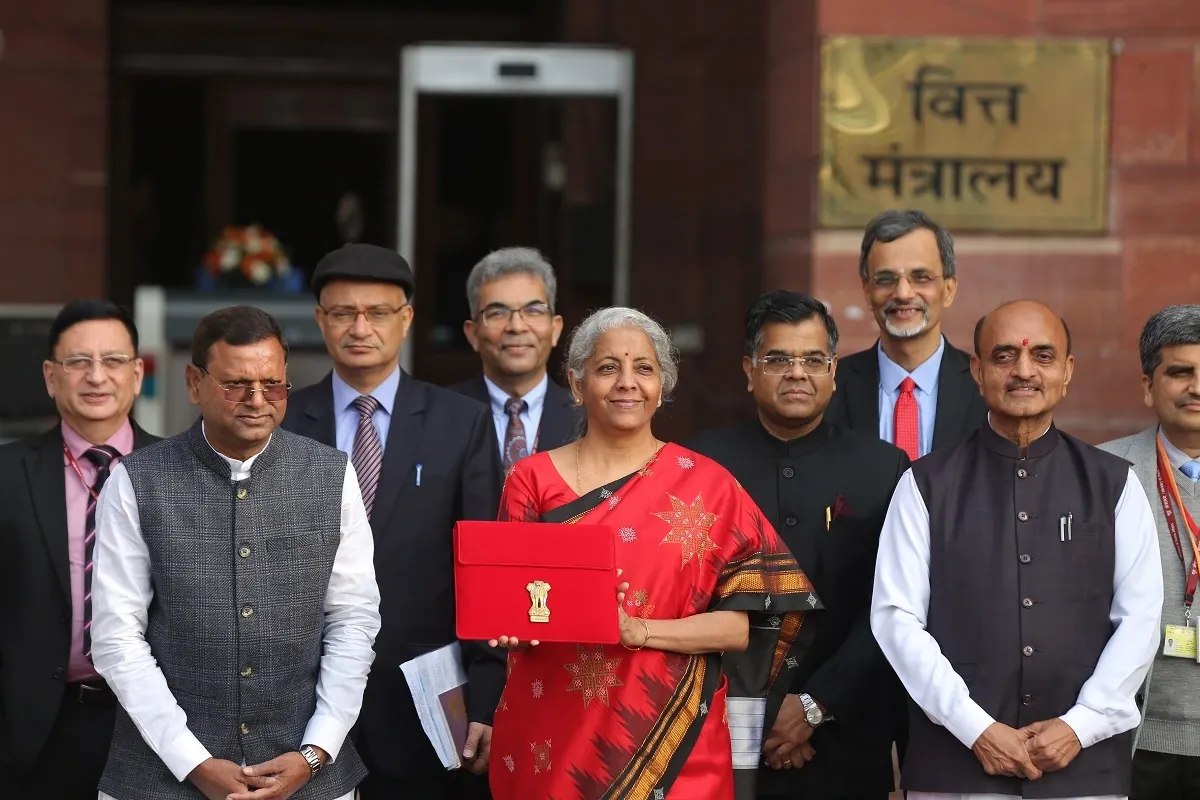Business News
Abolish STT, cut excise duty on fuel: What industry wants from Sitharaman in Union Budget 2025-26
.png)
3 min read | Updated on December 30, 2024, 15:24 IST
SUMMARY
During pre-Budget consultations with Finance Minister Nirmala Sitharaman, industry bodies recommended including abolishing the Securities Transaction Tax (STT), reducing excise duty on fuel, revising income tax slabs, enhancing welfare schemes, and simplifying tax compliance.

Finance Minister Sitharaman has been holding consultations with various stakeholders since December 6 to gather inputs for the Budget.
The PHD Chamber of Commerce & Industry (PHDCCI) has sought the removal of STT, citing that the recent hike in long-term capital gains tax on listed shares to 12.5% has brought equity taxation on par with other asset classes, reported Moneycontrol.
"This move would reduce the tax burden on investors and encourage more investment in the stock market, thereby stimulating economic growth," the industry body was quoted as saying.
Between April 1 and December 17 of the current fiscal year, STT collections stood at ₹40,114 crore.
The Confederation of Indian Industry (CII) recommended reducing excise duty on petrol and diesel, which accounts for around 21% and 18% of their retail prices, respectively, according to a PTI report. CII argued that despite a 40% fall in global crude oil prices since May 2022, excise duties remain unchanged, contributing to inflationary pressures.
"Lowering excise duty on fuel would help reduce overall inflation and increase disposable incomes," PTI quoted the industry body as saying.
CII also reportedly proposed a reduction in marginal tax rates for personal income up to ₹20 lakh per annum to spur consumption and economic activity. It suggested increasing benefits under welfare schemes like MGNREGS, PM-KISAN, and PMAY to stimulate rural recovery. It recommended raising the daily wage under MGNREGS to ₹375 and the annual PM-KISAN payout to ₹8,000, estimating additional expenditures of ₹42,000 crore and ₹20,000 crore, respectively.
Meanwhile, Assocham advocated for extending presumptive taxation to MSMEs and sectors like cloud computing to simplify compliance, according to media reports.
FICCI urged the government to increase capital expenditure (capex) by 15% in FY26 to maintain growth momentum amidst global uncertainties. FICCI also emphasised reforms in land, labour, and power sectors, proposing inter-state institutional platforms similar to the GST Council to advance reforms in these areas.
To simplify tax compliance, FICCI suggested rationalizing multiple TDS/TCS rates into a simpler tiered structure and eliminating TDS/TCS on GST-related transactions. It also called for an independent dispute resolution forum for tax matters to build taxpayer confidence and expedite resolution processes.
The Electronics and Computer Software Export Promotion Council (ESC) pushed for reforms in the Design Linked Incentive (DLI) scheme, including extending its duration to 2035 and introducing tax benefits for R&D-focused firms, reported PTI. Gurmeet Singh, Executive Director, ESC called for additional funding to the tune of $20 billion under the DLI scheme to meet the rising demand for R&D in emerging quantum technologies like AI and internet products. ESC also recommended a 10-year tax holiday on sales of IP-driven products developed through in-house R&D to incentivize innovation and local technology development.
The Engineering Export Promotion Council (EEPC) proposed a "faceless" GST audit system to improve the ease of doing business and recommended extending amnesty schemes for exporters dealing with reverse charge mechanism liabilities.
Finance Minister Sitharaman has been holding consultations with various stakeholders since December 6 to gather inputs for the Budget. These discussions have addressed challenges in industrial growth, rural consumption, and inflation amid concerns over slowing GDP growth, which stood at 5.4% in Q2 FY24.
The Union Budget 2025-26 is scheduled to be presented on February 1.
By signing up you agree to Upstox’s Terms & Conditions
About The Author
Next Story

